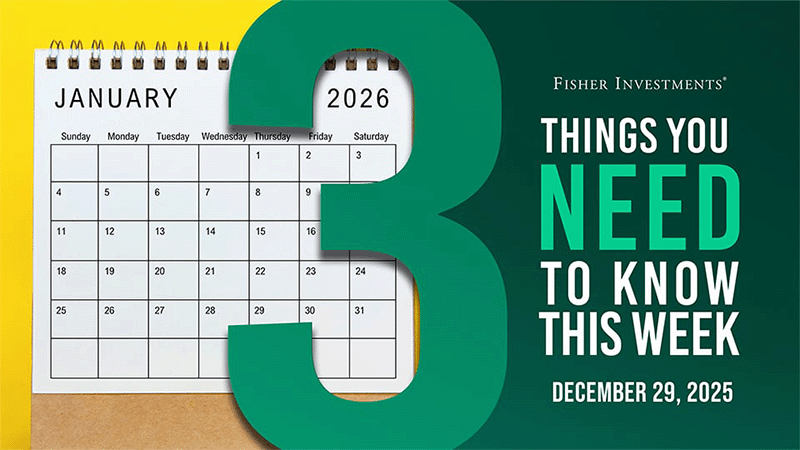Personal Wealth Management / Economics
Pass the Banjo
The US consumer isn't dead yet! January sales growth beat expectations and is tempering fears of an impending recession.
Story Highlights:
- Economic predictions are often wrong—the complexity of the economy makes it almost impossible to predict accurately in the short term.
- After much hand-wringing over slow December retail sales growth, January retail sales growth came in better than expected.
- Changing shopping patterns, gift card accounting complexities, and strong demand for autos account for January's pleasant retail sales surprise.
- Good or bad, single economic indicators don't say much about future economic conditions.
_________________________________________________________________________________
If you know clichés (and by definition you do), you know this one well: Two good ol' salts sit rocking on their porch chairs, watching the sky. Why? Because their bones tell them to. Just imagine the conversation:
"Jeb, I can feel a storm a-comin'. Jest asked ma lef knee."
"A storm he says, eh?"
"Yep, I'd wager my heating pad it'll be upon us in a jiffy."
"Ok then, yer lef knee never lies. Git out the banjo, let's sing her in proper."
You might marvel that anyone would forsake the weatherman for the aches and pains of a bum knee, but in reality, there's just no scientific repeatability when making weather predictions very far into the future (by bum knee or Doppler radar).
And economic expectations are no different. The economy is a vast and complicated beast of a network. It's a confusing arrangement governed by human behavior and interaction, ethics and self interest, and ethereal units of exchange passing between individuals, businesses, and governments.
So, economic expectations are more akin to arthritic weather predictions than you might guess—you can't count on them to describe the underlying health of the economy a month from now, let alone a year. Yet, time and again we're shocked to learn the economy did something unexpected.
For instance, remember last month, when the world was sure weak holiday sales spelled economic doom? And recession was the only plausible explanation for Americans' unwillingness to buy stuff?
Well, today January's retail sales numbers beat expectations and surprised markets by rising as much as economists had predicted they'd fall (up +0.3% compared to the -0.3% expected decline). This is good news because strong retail sales bolster consumption, the largest contributor to GDP at about 70%. And predictably, the media reported recession fears have eased.
January Retail Sales Unexpectedly Rise
By Shobhana Chandra
https://www.bloomberg.com/politics
So, why did these numbers beat professional consensus? A couple of factors account for the surprising growth. The unexpected strength seems to support the theory that many early shoppers hit holiday sales in November. But it is also tied to how gift card purchases have, in recent years, distorted holiday sales numbers.
You know all about gift cards, right? They're those colorful little pieces of plastic that allow you to dodge the responsibility of thinking too hard during the holidays. All you need to know is that Bob loves electronics, or Jim is a real DYI type, or Marcy loves arts and crafts. And hey presto! The perfect gift!
The problem is the SEC mandates the transfer of merchandise as a necessary condition for recognition of sales revenue. It's an odd rule no doubt, but it has increasingly depressed holiday sales growth as gift cards have grown in popularity. Hence, holiday sales are spread out over a longer period as gift card recipients happily cash in their store credit.
Americans buying new cars at a quicker pace was also important to January retail sales growth. And consider that most new car owners fund their purchase with debt. After all, where are all those speed demons getting their loans from? Banks, banks, and more banks. So, continued growth in items that typically require loans is a strong argument against a credit crunch—the much cited cause of recession fears in the first place.
Though economic expectations are great as guides, never forget their source is flesh and blood. And while many of the predictions are based on decent theoretical models, the sheer size and complexity of our economy is enough to often render economic expectations little more than rocking chair prophecies. There might be a storm a-brewing somewhere over the horizon, but for now, we think it's still too early to break out the banjo.
If you would like to contact the editors responsible for this article, please message MarketMinder directly.
*The content contained in this article represents only the opinions and viewpoints of the Fisher Investments editorial staff.
Get a weekly roundup of our market insights
Sign up for our weekly e-mail newsletter.

You Imagine Your Future. We Help You Get There.
Are you ready to start your journey to a better financial future?

Where Might the Market Go Next?
Confidently tackle the market’s ups and downs with independent research and analysis that tells you where we think stocks are headed—and why.





